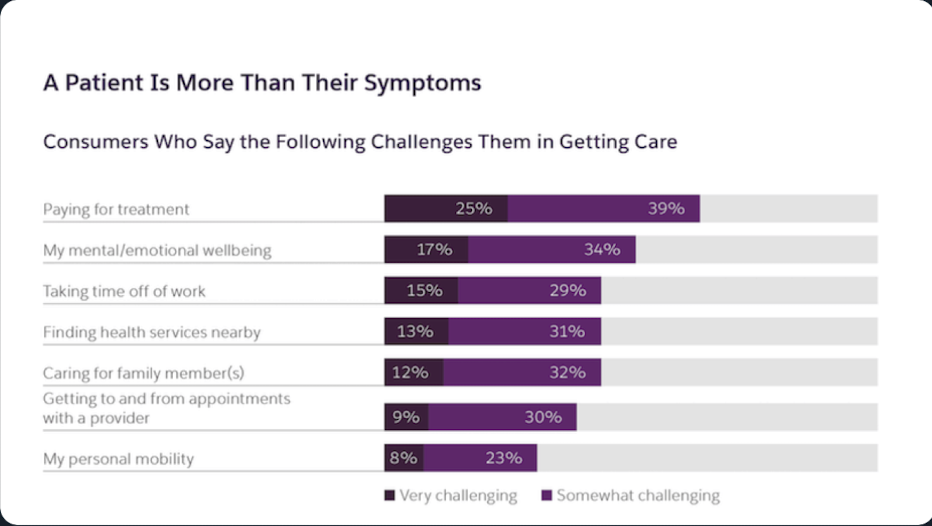It was a meeting of the minds as always with the Salesforce Dreamforce conference. There are lots of great announcements, and the event takes over all of San Francisco. From a healthcare perspective, the trend towards consumerization leaves patient-centric needs unmet. The abundance of healthcare information, availability of non-traditional solutions, and new models of care shift control from providers to patients. Patients demand healthcare access on their terms, not the providers’ or payors’ terms.
Here is a survey performed by Salesforce about patient challenges.

Latest Salesforce healthcloud announcements
Health Cloud’s Patient Program Management features include:
Guided Program Enrollment allows life sciences companies to create therapeutic support programs at scale to acquire, support and engage patients, improving both the patient experience and shortening the time to therapy.
Patient Services Consent Management provides pharmaceutical and medical device companies with the ability to easily view and capture patient consent with an eSignature. Now consent can take place with the enrollee in-person or remotely, as patients can log-in using a tablet or mobile device to view and provide consent on forms associated with the program.
Medical Device Commercial Operations features include:
Sales Agreements help medical device companies manage device sales, volume, price and revenue commitments. Sales and operations teams can collaborate to track whether customers are meeting their commitments by comparing planned sales quantities to actual booked orders, as well as planned revenue amounts to actual booked revenue.
Account-Based Forecasting helps medical device companies forecast device sales. Now, medical device customers can create a baseline forecast using market and account growth factors relative to the previous year’s actuals.
#chousangle
- We do expect the healthcare CRM market to pickup. Expect the fall of patient portals as customer relationship management (CRM) systems evolve to address experience management.
- Patients must have all their vital information, from health records to appointment schedules, at their fingertips. Integration and orchestration must address real-time patient matching and information sharing.
- Patient access is an area of concern, so evaluate how your contact center is operating, and how easy is it for a patient to schedule an appointment? Also, the contact center staff at your organization must have the tool to help with scheduling, so that process must also be efficient and effective.
- Pharmaceutical companies should start branching out with non-traditional affiliations with the health system. Think patient first and help the hospitals identify the appropriate patients for clinical trials.
- It will be interesting to see how the healthcare CRM plays out as the competition is heating up from various players along with the population health vendors tackling the whole person approach in healthcare.


